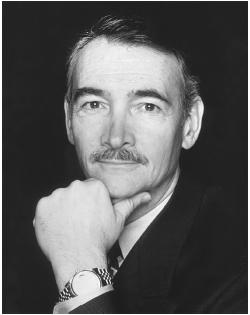Michael Wilson - Writer
Writer. Nationality: American. Born: McAlester, Oklahoma, 1 July 1914. Education: Attended the University of California, Berkeley, graduated 1936; studied in France 1937–38. Military Service: Served in

Films as Writer:
- 1941
-
The Men in Her Life (Ratoff)
- 1943
-
Border Patrol (Selander); Colt Comrades (Selander); Bar 20 (Selander)
- 1944
-
Forty Thieves (Selander)
- 1951
-
A Place in the Sun (Stevens)
- 1952
-
Five Fingers (Mankiewicz)
- 1954
-
Salt of the Earth (Biberman)
- 1956
-
Friendly Persuasion (Wyler) (uncredited)
- 1957
-
The Bridge on the River Kwai (Lean) (uncredited)
- 1958
-
La tempesta ( Tempest ) (Lattuada)
- 1960
-
Jovanka e l'altri ( Five Branded Women ) (Ritt)
- 1962
-
Lawrence of Arabia (Lean) (co)
- 1965
-
The Sandpiper (Minnelli)
- 1968
-
Planet of the Apes (Schaffner)
- 1969
-
Che! (Fleischer)
Publications
By WILSON: book—
Salt of the Earth (script) in Salt of the Earth: The Story of a Film , by Herbert J. Biberman, Boston, Massachusetts, 1965.
By WILSON: articles—
Positif (Paris), no. 64–65, 1965.
In The Hollywood Screenwriter , edited by Richard Corliss, New York, 1972.
On WILSON: articles—
Présence du Cinéma (Paris), June 1962.
Film Comment (New York), Winter 1970–71.
Ecran (Paris), October 1976.
Tuchman, Michael, in Take One (Montreal), September 1978.
Hodson, M., "Who Wrote Lawrence of Arabia ? Sam Spiegel and David Lean's Denial of Credit to a Blacklisted Screenwriter," in Cineaste (New York), vol. 20, no. 4, 1994.
Crowdus, Gary, and Michael Wilson, and Robert Bolt, "The Writer's Guild of America vs. the Blacklist: Lawrence of Arabia: Elements and Facets of the Theme: Apologia," in Cineaste (New York), vol. 21, no. 4 1995.
New York Times , Section D, 14 September 1995.
New York Times , Section A, 16 September 1995.
* * *
After being identified by the House Committee on Un-American Activities as "a Communist, past or present," Michael Wilson was denied work by the same industry which had given him an Oscar for A Place in the Sun , the screen adaptation he wrote with Harry Carr of Theodore Dreiser's An American Tragedy , and his films after the time of his "blacklisting" seem to reflect this. They are much less charitable toward human nature than his earlier work, often about sudden, drastic changes in one's fate. But they are also about more than that.
Wilson is at his best when he is exploring the dynamics of the group, and it is surely here that his greatest contribution as a writer is to be found. His chief weakness is his dialogue. The best one can say about a conversation written by Wilson is that it is passable movie dialogue. Never does it ring to the ear like a conversation between two individuals. But then neither does Wilson really offer us individuals. Rather, his characters take their definition from a larger body of people, alternately trying to accommodate that group, lead it, understand it, rebel against it, or find their place within it.
This is true of films as otherwise diverse as Salt of the Earth , The Bridge on the River Kwai , Lawrence of Arabia , Planet of the Apes , and Che! . In each case the group is depicted as a delicate balance of conflicting interests. Perhaps influenced by what he learned from McCarthyism, the group, in Wilson's scripts, is always corruptible, and always in danger of being weakened from within.
Wilson made a point of his penchant for working alone, even when the screen credits would suggest that he was worked with a partner, "In every case save one ( The Sandpiper )," he has said, "there was no collaboration. I either preceded or followed another writer." That's true, but it is also misleading, for it was his willingness to collaborate that made him attractive to so many directors.
It is no accident that Wilson's name has become identified with "big money" projects, productions involving extraordinarily large casts, extensive location work, or unusually costly support functions, for he was known as a writer who worked closely with directors. At once able and willing to adjust continuity, plot, and characterization without compromising the integrity of the story, he enjoyed the reputation of a seasoned professional who understands—perhaps only too well—the possibilities and limitations which movie making can provide.
—Jay Boyer
Comment about this article, ask questions, or add new information about this topic: